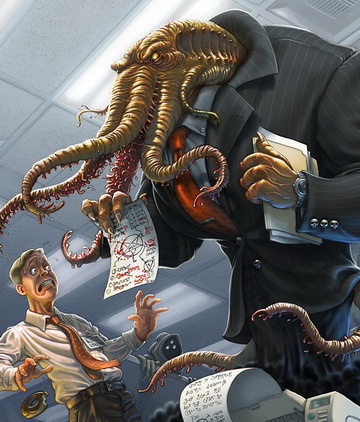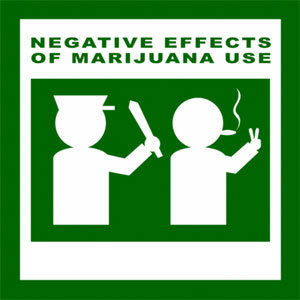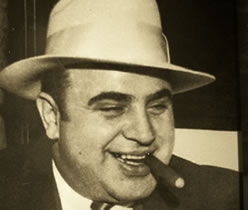(This is an edited-for-reading version of the last speech I gave in my Public Shrieking class. I had considered lecturing in favor of legalizing gay marriage, but ultimately determined that I would be better off with a topic about which I would be less likely to rant and froth at the mouth. Ultimately my speech was very well received, by my fellow students and by Prof. Apollo herself. She said it was the best I had done to date, which was very kind of her. But it's always easier to be convincing when it's something you're genuinely passionate about. Except for the frothing part, I mean.)
I grew up in a house with an open door.
When we bothered to set places at the table at all,
there was always extra for the Unexpected Guest, just in case. There is a tradition in my family – one that
I broke with when I started having daughters – of taking in whoever is in need
and helping them get back on their feet.
Rarely did I see the time when we did not have guests in the house,
sometimes for a week or two, sometimes for years. I had a lot of adoptive older brothers and sisters,
and yes, we got ripped off, too. But it
was a vital part of my education, and occasionally I wish that circumstances
had allowed me to share it with my own children.
Addicts, homeless, runaways, escapees from some bad
situation at home or some poor chicken who found out the hard way that even KC
can be a big city when it feels the urge.
I saw a lot of mean addictions, people hooked on drugs, sex, religion,
money, alcohol, politics, or even their own sense of failure. There were a lot of heavy trips, too, from the
young gigglers making out on a couch to the poor girl whose date slipped her
LSD at a party, told her he was the Devil and had come for her soul. He ended up locking her in a closet, lights
off, her head full of Boyfriend’s acid and Daddy’s Anti-Christ.
And, of course, there were the withdrawal cases, the
DTs that might have my foster brothers and sisters sweating, snapping,
fighting, freaking, or just snorting Polo cologne from the cap sometime ‘round
the midnight hour.
But I never, ever, saw anything bad come from
marijuana. In all the years I spent
growing up surrounded by the best and worst poster children for Bad Habits Inc.
and all its subsidiaries, I never, not once, saw cannabis act as an addictive
substance in and of itself, nor as a gateway drug of any kind. I never saw anyone go through bad withdrawal
from giving up pot, and I never saw any harm come from a marijuana OD.
Please understand: I don’t smoke the reefer. I’ve never tried cannabis, and I probably
never will. It’s just not my thing. In addition, I have seen, not just the
parties, but their aftermath, time and time again throughout my life. Which means that I have observed the cannabis
situation, inside and out, from as close to an unbiased point of view as you
can get. So when I say that marijuana
should be legal, I speak as someone with absolutely no personal gain in the
matter.
And marijuana should most definitely be legal. Its classification as a controlled substance
is a symptom of the blind, unthinking hysteria that has pervaded American
culture for far too long. The history of
its illegalization is steeped in greed, racism, and racketeering. And the time to end this madness is long
overdue.
I ran an anonymous survey recently, as part of my
classes at good old Wotsamotta U. I
quizzed classmates and people in my own neighborhood, no one too close to me
personally. Of those surveyed, 80% had
tried cannabis at least once. 70%
imbibed on at least a “sometimes” basis, 50% regularly. And no one, not even the 20% who had never
tried it, answered “yes” when asked if they would turn in a friend or family
member for using the illegal drug.
Which means that almost everyone surveyed secretly
breaks this law. And if you know one of
those lawbreakers, or used to know them, and you did not report them
immediately to the police . . .
Under current law, we are all criminals.
But how is this possible? If marijuana is so great, why is it illegal
in the first place? At what point could
a law be passed to transform literally millions Americans, otherwise considering
themselves upright and law-abiding, into habitual, hardened criminals?
To better understand the answer to that question,
let us take a brief look at the effects and risks of cannabis as a drug,
regarding both health and society.
First of all, Marijuana is not a harmful substance
in and of itself. In his book, simply
titled The Herb Book, John Lust
identified the active chemical behind marijuana’s high as THC, or
tetrahydrocannabinol. This chemical can
cause relaxation, fatigue, alteration
of the senses, and of course, appetite stimulation. As such, it has been used by humankind for centuries, some say for thousands
of years.
There is no way to be sure how many people use
cannabis, or marijuana, in the US today.
Most users know they are doing so illegally, and are understandably reluctant
to offer themselves up. And as any
census taker will have their own agenda.
The more money and politics are involved the more their statistics will
be twisted around to their own ends. But
almost everyone knows someone who has smoked marijuana at least once. It bears repeating. We are all criminals here.
In 1995, the Lancet,
one of the most recognized and respected journals of medicine for over a
hundred years, published the following conclusion: "The smoking of
cannabis, even long-term, is not harmful to health."
In 1998, three years
later, the Lancet acknowledged that there are technically dangers in marijuana
use, primarily accidents while intoxicated and possible cognitive impairment
with heavy, long-term use. In this,
however, it remains, “It would be
reasonable to judge cannabis less of a threat to health than alcohol or
tobacco, products that in many countries are not only tolerated and advertised
but are also a useful source of tax revenue.”
Approximately 50,000
people die each year from alcohol poisoning. Over 400,000 deaths can be linked
to tobacco smoking each year. By
comparison, if a person overdoses on marijuana, they eat a peanut-butter – banana-crunch
burrito and sleep for two days.
But cannabis, or marijuana, isn’t just a
recreational drug. It has been proven to have positive effects regarding
pain – including pain from nerve damage – eyesight, and, of course,
stress. It is also a powerful appetite
stimulant, especially for those suffering from AIDS and from organ failure. Manufactured pharmaceuticals often have
detrimental, even hospitalizing side effects.
Cannabis does not. But being a
black market drug means that not only is it prohibitively expensive, its supply
is also unreliable.
Small wonder, then, that according
to the National Organization for the Reform of Marijuana Laws, or NORML, “. . .
more than 60 U.S. and international health organizations support granting
patients immediate legal access to medicinal marijuana under a physician's
supervision.”
Here are just a few of them:
AIDS Action Council
Aids Treatment News
American Nurses Association
American Preventative Medical
Association
American Public Health Association
American Society of Addiction
Medicine
The Montel Williams MS Foundation
Multiple Sclerosis Society (Canada)
The Multiple Sclerosis Society (UK)
National Association for Public
Health Policy
National Nurses on Addictions
This is not to say, of course, that
there are no risks . . .
Prosecution of marijuana has gone up and down a lot
in recent decades, but the trend is definitely an upward one.
In
1965, an average of two people were arrested for cannabis-related charges every
hour. By 2010, that number had gone up
to an average of 97.5. In 2005, more than 786, 000 people were arrested in this country for marijuana-related offenses alone. That’s more arrests than there are people
living in Kansas City Missouri, and since then it’s gone up.
As an aside, the cost
to the taxpayers for monitoring, arrest, trial, conviction, and incarceration
for marijuana criminals is estimated at about $10 billion per year. All for a drug that,
when not cut with chemicals, has no major side effects, is not toxic, is not
addictive, and has some major medical benefits.
And, of course, there are crime risks. Much like in prohibition, when something
becomes illegal, the gangs get involved.
I met a man in Topeka who made his living as a pot courier. He
decided to retire, but he made the mistake of staying in town. He was dead in six months.
While most casual buyers aren’t dealing with quite
that level of risk, it is there. Sometimes,
there is the risk of getting marijuana laced with toxic chemicals. But most often, there is the risk that one of
your contacts will get arrested, and then give the police your name to get a
lighter sentence.
So long as cannabis is a controlled substance, those
who cannot obtain it legally will have to deal with the crime elements to
obtain it. And that means risking having
the substance cut with poisons, being arrested, or even just having their
physical safety threatened. All this for
something anyone could grow in their own back yard if it were not illegal.
So, now that we have seen the benefits and the basic
harmlessness of cannabis itself, the question remains: how did we end up with
this level of hysteria? How did the
institution of marijuana’s illegality come to be so well entrenched? If cannabis isn’t bad, as indeed it is not, how
did the American public ever come to fear it in the first place?
The simplest explanation, the most pivotal, happens
to be from Abbie Hoffman’s book, Steal
This Urine Test. According to Abbie
Hoffman, the blame lies with a man named Harry J. Anslinger. Mr. Anslinger was the Assistant Prohibition
Commissioner in the Bureau of Prohibition. Which means
when prohibition started winding down, he was in danger of losing money, power,
and influence. He was also, as many were at the time, a racist.
Harry Anslinger started putting out pamphlets and
newsletters about the evils of certain drugs, including cocaine and cannabis –
or, as he called it, marijuana. Each
drug was associated with at least one racial stereotype, and played on racist
fears.
Marijuana was the drug Anslinger chose to be the
drug of the black man. He claimed it was
highly, instantly addictive, and was the herald of society’s utter destruction.
He wrote police-styled “reports” of how otherwise
fine young white men would be found in their blood-spattered houses, wandering
dazed, axe in hand, the mutilated corpses of their loved ones surrounding them. He published findings of black men losing
their minds and raping white women, destroying their lives forever. All this horror, he maintained, because of
marijuana.
In 1929, he was quoted as stating, “Marijuana makes
darkies think they are as good as white men.” This in and of itself was enough to stir the fear and hatred he needed. But it was later, in 1937, he revealed the real fear behind the anti-cannabis
movement: sexually free women and inter-racial sex.
By that time he was
just keeping the ball rolling, though. On June 14, 1930, Harry Anslinger was appointed the first commissioner of the newly-formed Federal Bureau of Narcotics.
Now his power was secure.
And we have been living with the aftershocks of the fear that he
instilled, and the bureaucratic machine that has grown up around it, ever
since.
Marijuana is
not, and never was, a threat to any individual or group.
In conclusion, the continued treatment of cannabis
as a controlled substance is like a very bad joke that history has played at
our expense. Cannabis, or marijuana, is
not harmful. Besides being a popular
recreational drug, it has multiple medical uses. The history of its illegalization is steeped
in greed, racism, and racketeering. By
making it freely available for anyone, the sick and chronically ill will be
able to treat themselves, responsible adults will be able to use it recreationally
(much like with alcohol), and the kids of the nation will be able to experiment
without fear of arrest, poison or gang violence.
Visit NORML.ORG for more information on cannabis and how you can
help free everyone from this madness.
--Coyote.
(Images of Al Capone and the St. Valentine's Day Massacre courtesy of tripod.com. Image of a beautiful sleeping woman courtesy of news.com.au. All rights reserved by their rightful holders, if any or at all.)




















